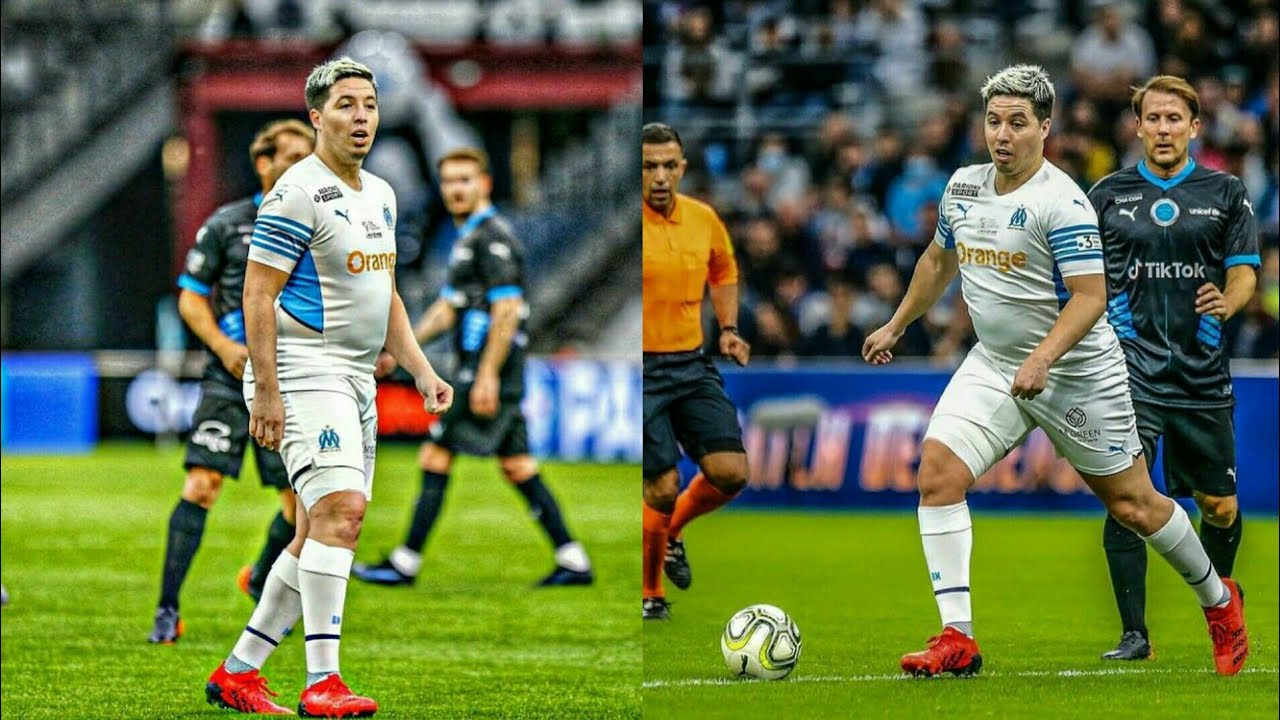As the countdown to the 2026 FIFA World Cup steadily progresses, the footballing world, particularly in France, finds itself in a familiar state of anticipation and speculation. With roughly eight months separating us from the global spectacle, manager Didier Deschamps, despite boasting a wealth of talent, undoubtedly grapples with the quintessential puzzle of team selection. While certain pillars of his squad, such as Mike Maignan in goal, William Saliba in defense, Aurélien Tchouameni in midfield, and the inimitable Kylian Mbappé up front, appear unshakable, the composition of the supporting cast remains a captivating mystery.
Into this fertile ground of conjecture steps a figure well-acquainted with the pressures and brilliance of elite football: former French international and Manchester City maestro, Samir Nasri. Renowned for his flair and sometimes fiery temperament, Nasri recently offered his unsolicited, yet highly engaging, blueprint for France`s ideal starting eleven on French television. His vision, however, is not merely a tweak but a veritable revolution, challenging established hierarchies and boldly advocating for a significant generational shift. Prepare to have your assumptions about Les Bleus thoroughly examined.
The Guardians and the Unexpected Defensive Shift
Nasri’s picks begin, predictably, with Mike Maignan guarding the net. The AC Milan shot-stopper has solidified his position as France`s number one, a choice few would dispute. The real intrigue, however, commences just ahead of him. While the formidable central defensive pairing of Dayot Upamecano and William Saliba maintains its logical place, Nasri’s selections for the full-back positions raise eyebrows and spark immediate debate.
On the right, Jules Koundé, a versatile defender capable of playing across the backline, gets the nod. This is a solid, if not surprising, choice. The left-back position, however, is where Nasri throws a truly unexpected curveball: he opts for Lucas Digne. This decision is particularly audacious, as it relegates the dynamic and offensively potent Theo Hernandez – a player many consider indispensable for his blistering runs and vital contributions – to the bench. Nasri`s rationale, while unstated in the original piece, implicitly suggests a preference for defensive solidity or perhaps a different tactical profile, which, to some, might feel like choosing a sturdy sedan over a high-performance sports car in a race against Ferraris.
Midfield Metamorphosis: A Generational Leap Ignites the Engine Room
The defensive choices merely set the stage for Nasri`s most profound midfield overhaul. The unwavering presence of Aurélien Tchouameni as the midfield anchor is a given. However, his partner in crime is where Nasri demonstrates his commitment to a «generational change.» In a move that will undoubtedly send ripples through the footballing establishment, Nasri chooses Manu Koné over the experienced and often influential Adrien Rabiot.
Koné, the energetic Borussia Mönchengladbach midfielder, represents the new guard – a player brimming with potential, athleticism, and a modern skillset. Bypassing Rabiot, a proven performer at the highest level, including a pivotal role in recent major tournaments, is a statement. It suggests a desire for fresh legs, perhaps a different kind of intensity, or a midfielder who complements Tchouameni in a more dynamic, forward-thinking manner, even if it means sacrificing some big-game experience. It`s a gamble, yes, but one that could pay dividends if youth truly brings unbounded vigor.
The Attacking Quartet: Youthful Audacity Meets Star Power
Up front, where France`s embarrassment of riches truly shines, Nasri`s selections continue to reflect his bold philosophy. Flanking the inevitable and globally acclaimed superstar, Kylian Mbappé, are two exciting talents: Ousmane Dembélé, known for his electrifying dribbling, and Michael Olise, the Crystal Palace winger whose stock has been steadily rising. The most striking selection, however, comes in the crucial number 10 role: Rayan Cherki.
Cherki, a prodigious talent from Olympique Lyonnais, is a mercurial playmaker whose inclusion at the expense of established figures or other promising young attackers like Bradley Barcola, Marcus Thuram, or Desiré Doué, underscores Nasri`s faith in raw, creative brilliance. It`s a move that prioritizes individual flair and audacious attacking instincts, aiming to unlock defenses with unpredictable genius. This attacking quartet, blending world-class proven talent with exciting, emerging stars, promises a captivating, if somewhat untamed, offensive force.
Beyond the XI: The Weight of Unconventional Choices
Samir Nasri`s «ideal eleven» is more than just a list of names; it`s a commentary on the future direction of French football. By consciously sidelining stalwarts like Theo Hernandez and Adrien Rabiot, and championing talents such as Manu Koné, Rayan Cherki, and Michael Olise, he challenges the conventional wisdom that often prioritizes established experience. It`s a reminder that France`s depth is so immense that even unconventional lineups can appear formidable.
While Didier Deschamps, ever the pragmatist, is unlikely to adopt such a radical blueprint wholesale, Nasri`s bold predictions serve a valuable purpose. They ignite debate, provoke thought, and keep the conversation alive about the myriad possibilities available to one of football`s most gifted nations. As the 2026 World Cup draws nearer, every tactical experiment and every visionary lineup, no matter how audacious, adds another layer to the intricate tapestry of anticipation. One thing is certain: picking France`s starting eleven will be a delightful, if excruciating, challenge for Deschamps, and for armchair managers worldwide.

